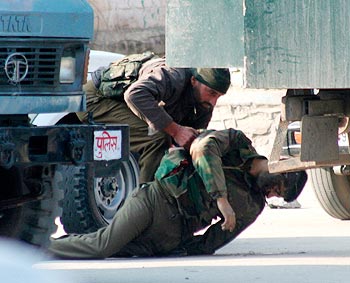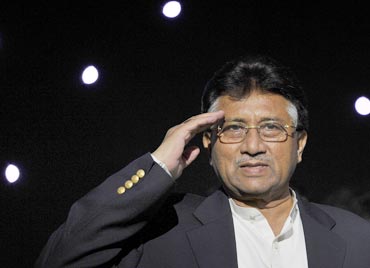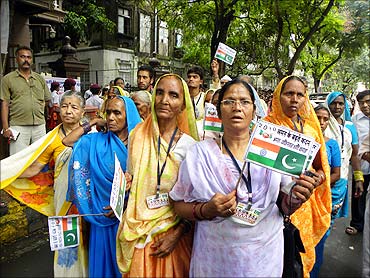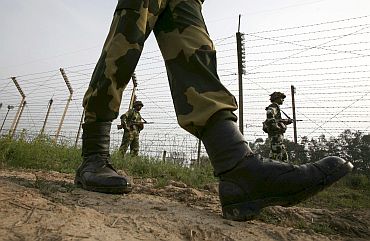
In its effort to improve its ties with Pakistan, India played down the spurt in infiltration from the neighbouring country in 2008 -- the year in which Pakistan-based terrorists carried out the Mumbai terror attack, according to a secret United States cable released by WikiLeaks.
During his meeting with visiting US Senators Russ Feingold and Bob Casey on May 30, 2008 in New Delhi, the then National Security Advisor, M K Narayanan, said that India has downplayed an increase in infiltration and has not lodged a protest before the new Pakistani government as part of its efforts to improve relationship with its neighbour, the cable said.

Narayanan noted that under (Pakistan) President (Pervez) Musharraf from 2004 to 2006, the Composite Dialogue had moved forward and infiltration had dropped. But the political crisis in Pakistan in 2007, when an emergency was declared, had stalled progress.
He said that he was 'hopeful' the new leadership would continue to see dialogue as useful, and not just as "something that Musharraf did," the cable said.
"The recent foreign minister meetings in Islamabad helped ensure that the new government would sustain the Composite Dialogue," Narayanan recounted.

However, he regretted that infiltration and incidents have spiked recently. He related that the Indian government has played them down and not lodged a formal protest, deciding instead to treat them as a 'temporary aberration'.
Narayanan remembered that hostility between India and Pakistan had dropped to such an extent that Pakistan had at one time withdrawn some of its military from the India-Pakistan border in order to focus on the threats along the border with Afghanistan, but those forces have since returned to the Indian border, the cable said.

Asked by Senator Casey how India felt about the pacts signed between the Pakistani Army and tribal groups, Narayanan replied that the Indian government does not consider them conducive to peace. Instead, he stated, "they are outsourcing terror".
He acknowledged that the US understands this stance, but the British seem to think that the peace deals are a good move.
"Instead, Narayanan cautioned, the deals will allow the tribal groups to re-energise by withdrawing the pressure under which they might have relented," the cable said.

"Narayanan also advised the US to fight the war on the ground and avoid an air war, which he doubted would work against tribal groups. Senator Feingold said that he shared Narayanan's concerns about the peace agreements," the cable said.
Narayanan recognised that the importance of building a secure and stable Afghanistan has exposed the US to concerns that India has held for many years.
A week after then External Affairs Minister Pranab Mukherjee visited Islamabad, the Indian government appeared reassured by the new Pakistani leadership's stated desire to sustain the dialogue that Musharraf had maintained, the cable said.
"Narayanan's description of the effort to downplay the growth in incursions clearly aims to give the new leadership in Islamabad breathing room. However, if India experiences another attack on the scale of Jaipur or several more weeks of heightened violence and infiltration activity on the border, the pressure will mount on India to show its displeasure in public," the US Embassy cable warned.